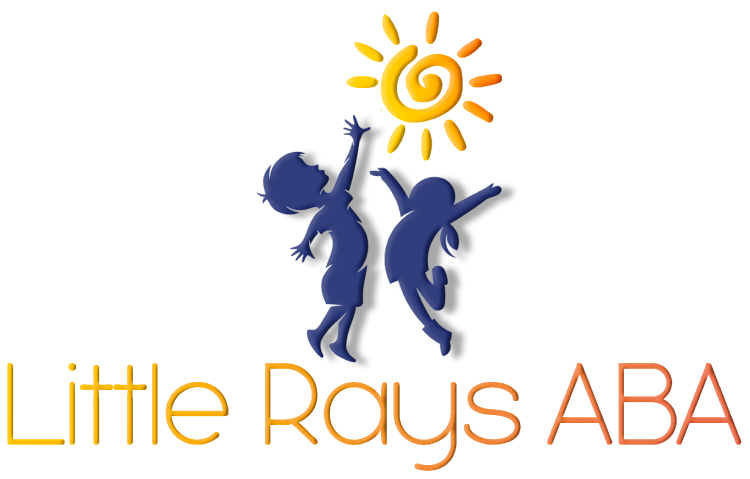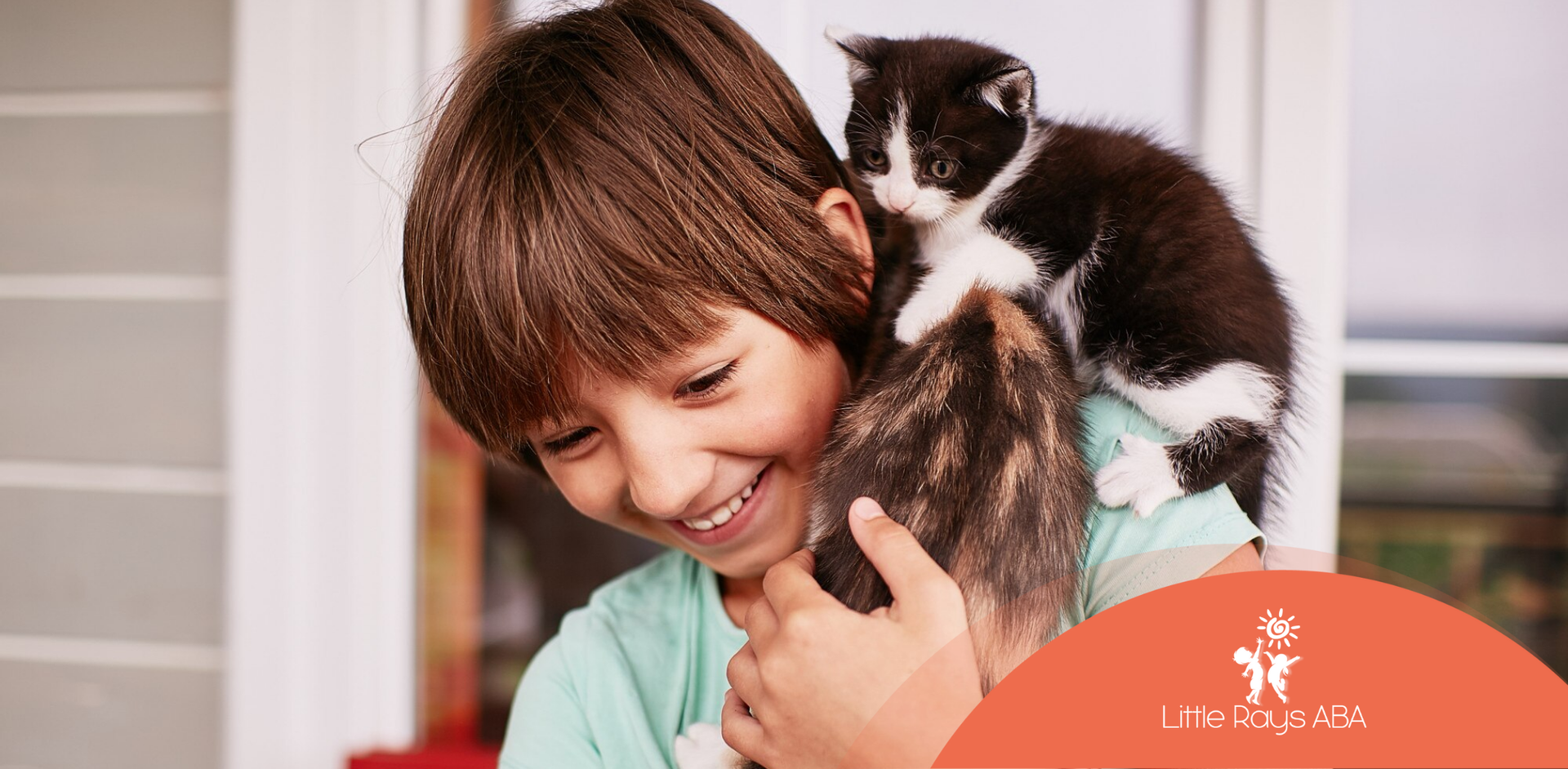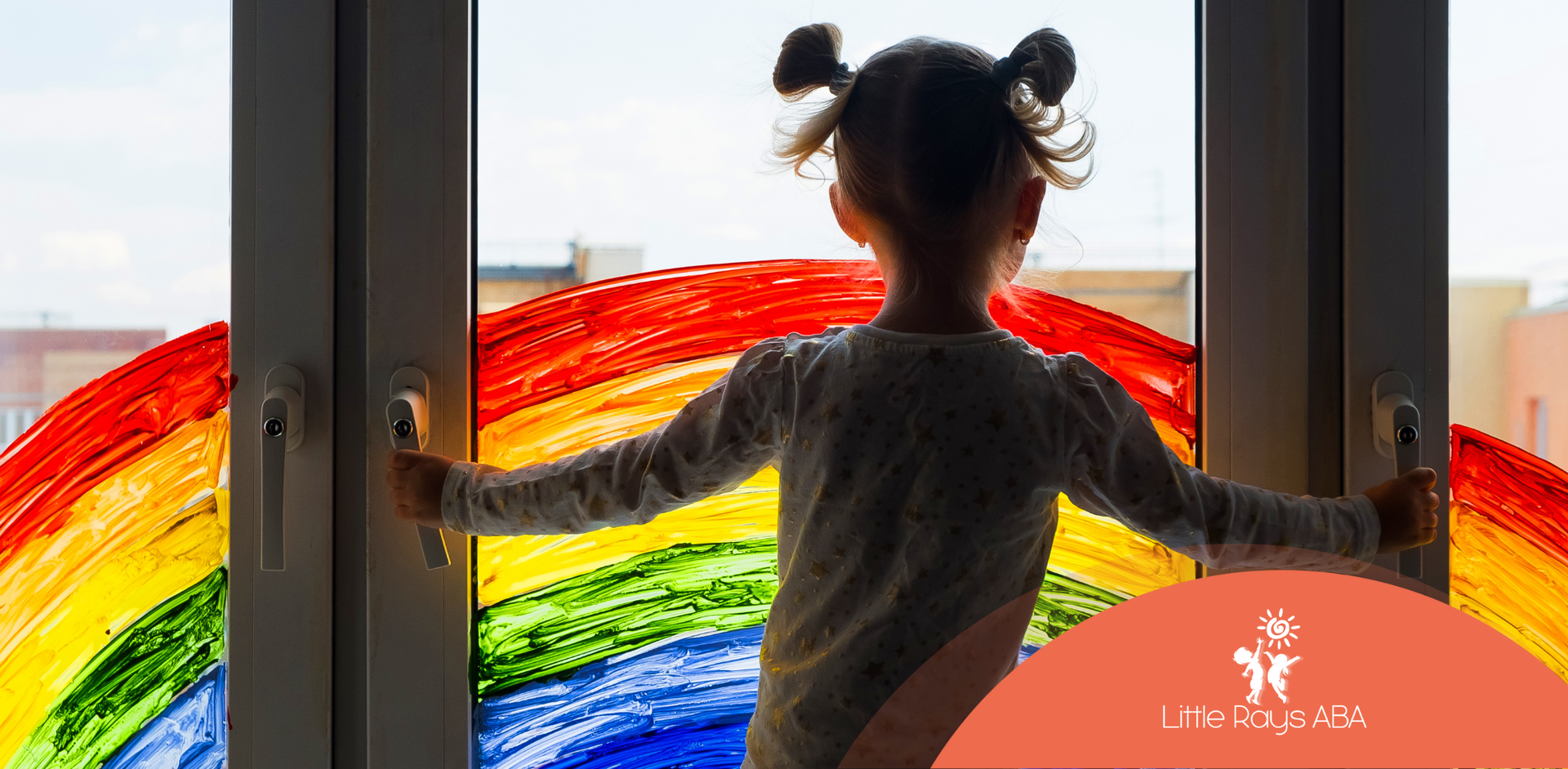Understanding Autism Spectrum Disorder (ASD)
Definition and Characteristics
Autism Spectrum Disorder (ASD) is a developmental condition with unique social, communication, and behavioral challenges. Kids with ASD might find it tough to chat or play with others and may do things like repetitive movements or develop intense interests. Since autism affects kids differently, each child's path might be different too, needing personal care and patience.
Signs of autism appear early on. See the table below to catch some common signs in little ones that might point to ASD:
| Age Group | Common Signs |
|---|---|
| Infants | Avoids eye contact, not very smiley |
| Toddlers | Late talkers, struggles playing with others |
| Preschoolers | Repetitive moves, doesn't share interest in activities |
Social Communication Challenges
For kids with autism, engaging with others can be tricky. They might find it hard to get what people mean with words or gestures, which can be frustrating and lead to mix-ups. Some hurdles they face include:
- Trouble figuring out facial cues or body language
- Hard time starting or keeping up a chat
- Not quite getting social rules or cues
These hiccups in understanding can make kids feel left out or lonely, making friendships a challenge. It’s important for parents and caregivers to spot these signs early and find helpful strategies and support. For more on boosting social skills, check out our piece on social skills and autism.
Plus, kids often have sensory quirks linked to autism, like being extra sensitive or barely noticing sights, sounds, textures, or tastes. Dive into our guide on sensory issues in autism for more insight.
Grasping these traits and the social hurdles ASD brings is key for families, educators, and folks wanting to really support kids with autism.
Signs of Autism in Children
Spotting the signs of autism in children early gives them the best chance for support and growth. Everyone, from doctors to parents, should have their radar up for hints of Autism Spectrum Disorder (ASD).
Early Signs in Young Children
Kids can start showing hints of autism as young as 12 months, though sometimes it might not be until they're two or older. As per the NHS, look for these early signs:
- Socializing Struggles: Less eye contact, disinterest in playing with others, and trouble picking up on social hints.
- Speech and Language Delays: Not babbling or using first words by one year old; not stringing words together by age two.
- Stuck on Repeats: Doing the same things or movements over and over, like hand-flapping or rocking.
To help keep an eye on what's happening, here's a handy chart for spotting signs:
| Age Range | Signs of Autism |
|---|---|
| 0-12 months | Not much eye contact, doesn’t react to their name |
| 12-24 months | Speech delays, troubles with pointing or gestures |
| 2 years and older | Repeated behaviors, not keen on socializing |
Remember, some kiddos might seem on track with development, then suddenly slow down or even lose skills between 18 and 24 months.
The American Academy of Pediatrics thinks it’s smart to screen for autism as part of regular check-ups at 18 and 24 months to catch any signs and lend support as needed.
Behavioral Signs in Older Children
In older kids, signs of autism stand out more. Watch for:
- Trouble Mixing with Others: Hard time getting or giving back in social chats, which can lead to feeling left out.
- Talking Struggles: Issues with back-and-forth conversation, and they might not get jokes or sarcasm.
- Hopelessly Hooked on Hobbies: Being super into certain topics or things, with little care for anything else.
| Age Range | Behavioral Signs |
|---|---|
| 3-5 years | Not very social, has a tough time with make-believe play |
| 6-12 years | Hard making friends, freaks out with changes |
| 13 years and older | Pulling back from others, obsessively interested in niche interests |
Knowing these signs can help parents and teachers see who might need a closer look. Early diagnosis is super important, as a visit with a pro can lead to customized help that really makes a difference.
Diagnosis and Support for Autism
Importance of Early Diagnosis
Catching Autism Spectrum Disorder (ASD) early is a game changer for kids who may be showing signs of autism in children. The American Academy of Pediatrics thinks it’s so important, they say every kid should get screened at 18 months and 24 months. They also want those check-ups at 9, 18, and 30 months, during those regular doctor visits. Spotting it early means families can snag the right help and resources at just the right time, making a huge difference in how the child learns and grows.
Kids who get diagnosed early on can start special programs that play to their strengths and help tackle their challenges. This can lead to them becoming more independent and improving their social and emotional skills. With early help, kids can work on important skills like talking and getting dressed, making autism’s impact a bit lighter.
| Age of Screening | Type of Screening |
|---|---|
| 9 months | Developmental and Behavioral Screening |
| 18 months | Autism Screening |
| 24 months | Autism Screening |
| 30 months | Developmental Screening |
Seeking Professional Evaluation
When you think your child might be showing signs of autism, don't just sit on it. More jumping on it early makes a big difference. The NHS agrees that getting a diagnosis is really important because it helps kids get the support they might need. Getting a pro to assess your child can clear up whether they’re on the autism spectrum and help point families toward the right interventions.
Having a professional evaluate typically involves a detailed look at how the kid acts, how they communicate, and their background development. Experts might use different tools, chat with the parents, and watch how the kid behaves to figure out what exactly they need. Families need to talk straight with their doctors about what they’ve seen and what’s worrying them, as it will help the evaluation process.
There's no magic bullet that works for everyone with autism, but a solid diagnosis can open up customized support paths. When families have access to things like school programs and therapy, they can make smart choices that fit their child's needs. Families are encouraged to explore different avenues and put into practice strategies that nurture their child's growth, keeping in mind their strengths and challenges.
Treatment Approaches for Autism
Dealing with autism signs in kids involves a bunch of tried-and-true methods designed to back those on the Autism Spectrum. The main tactic categories are behavior-focused and growth-oriented schemes.
Getting the Hang of ABA
Applied Behavior Analysis, better known as ABA, ranks as a go-to, proven method for tackling Autism Spectrum Disorder (ASD). Centering on tweaking behaviors and skills while dialing down unwanted actions, ABA banks on positive reinforcement tricks. The treatment zeroes in on sharpening abilities like chatting, mixing with others, and handling everyday stuff. It’s all about tracking progress closely, letting both parents and therapists witness the journey upwards.
Here's usually how a behavioral intervention game plan plays out:
| Part of the Plan | What It Means |
|---|---|
| Tests and Checks | Kicking off with checks to suss out what the kid needs and can handle. |
| Setting Targets | Crafting goals that are clear and countable for the child. |
| Teaching Tactics | Rolling out moves like reinforcement and modeling to hit target behaviors. |
| Keeping Tabs | Keeping a watchful eye on progress to tweak tactics when needed. |
There are other behavior strategies like Activity-Based Intervention and Cognitive Behavioral Intervention (CBI) that can be thrown in the mix for a setup that fits like a glove.
Growth-Oriented Tactics for ASD
Focus on developmental tactics to boost a kid's overall bloom by using natural chats and enriching moments. These ways cheer for communication, social mingling, and feelings, nurturing the child’s knack to grow on their timeline.
Take something like the TEACCH way, which banks on being consistent and using visuals to teach. It’s found a lot in classrooms to upgrade school and other results for kids with ASD. Here's what makes the TEACCH tick:
| Way of Doing | What That Means |
|---|---|
| Visual Helpers | Using picture-like schedules and visual hints to make tasks clear. |
| Structured Spaces | Setting up spots to cut down distractions and help learning. |
| Personalized Plans | Customizing the learning setup to hit each child’s needs. |
These growth tactics bend and adapt, giving autistic kids room to blossom socially and emotionally at their speed.
Unravel specific options or stories of public figures who’ve climbed the ladder despite ASD. For tales of famous people with autism, see how they've soared over the ASD hurdles.
Types of Autism Disorders
Getting to grips with the types of autism can be a big help in understanding the unique journeys of individuals with Autism Spectrum Disorder (ASD). Among the different categories, we've got Asperger's Syndrome, Pervasive Developmental Disorder, and Childhood Disintegrative Disorder (CDD) standing out.
Asperger's Syndrome and Pervasive Development Disorder
Asperger's folks are often brainy and quite adept at everyday tasks. Yet, the social stuff can trip them up. They might zero in on particular interests, but understanding social cues? Not their forte.
Pervasive Developmental Disorder, Not Otherwise Specified (PDD-NOS) slots in between Asperger's and classic autism in terms of severity.
Kiddos with PDD-NOS deal with issues in social communication, emotional ups and downs, and may get rattled by changes in their routine.
| Disorder Type | Traits | Severity |
|---|---|---|
| Asperger's Syndrome | High intelligence, social challenges, focused interests | Milder |
| PDD-NOS | More severe than Asperger's but less than autistic disorder | Moderate |
Recognizing these differences helps parents, family, and teachers provide the best support to kids facing these hurdles.
Childhood Disintegrative Disorder (CDD)
Childhood Disintegrative Disorder (CDD) is like a storm that rolls in fast. Kids show normal development for at least two years, then suddenly lose the skills they've gained. We're talking about language, social interaction, and motor skills vanishing. CDD is pretty severe, with a steeper developmental decline than other autism types.
Symptoms reveal themselves through social withdrawal, a lack of interest in what they once loved, and noticeable shifts in how they interact and communicate. Jumping in early with support can make a big difference, maybe even recovering some lost ground.
Grasping these different autism types is key to nailing down the best ways to support and treat them. Dive into more specifics, like sensory issues in autism and social skills and autism. Whether you're a parent or pro, understanding these nuances helps tailor support to fit each child's needs.
Developmental Delays in Kids
Kids can lag behind in different ways, like socially, emotionally, behaviorally, in how they talk, and in how they think. Spotting these signs early is key to getting them help.
Social, Emotional, and Behavior Challenges
Kids who face these delays, such as those linked to autism, often have a tough time making friends and understanding social cues. They might not seem interested in playing with other kids or figuring out how others feel.
Here are some things to look out for:
| Red Flag | What's Going On? |
|---|---|
| Avoiding Eye Contact | Hard time keeping eye contact while talking. |
| Trouble with Emotions | Finding it hard to understand their feelings and others'. |
| Not Interested in Playing | Doesn’t join in with others for games or play. |
| Prefers Being Alone | Likes being alone instead of with others. |
Sometimes, kids aren't interested in learning or playing because they've been through something hard or they're not in an environment that helps them grow. Taking action early can make a big difference for these kids.
Speech and Thinking Delays
Some kids take longer to learn to talk and think things through. They might have a smaller vocabulary, struggle with making sentences, or get confused by instructions.
Check out these common signs:
| Red Flag | What's Up? |
|---|---|
| Few Words | Doesn't know as many words as expected. |
| Sentence Trouble | Has a hard time putting words together. |
| Can't Follow Directions | Gets stuck on instructions or questions. |
| Thinking Delays | Struggles with solving problems or remembering things. |
These children could really benefit from an evaluation that checks their story and play skills, how they think and move, and how they react socially and emotionally. Catching these issues early and stepping in can really help these kiddos.
Understanding delays is a big step for parents and caregivers coping with autism spectrum disorder. There's more to learn about sensory issues in autism and boosting social skills with autism.
SOURCES:
https://www.cdc.gov/autism/signs-symptoms/index.html
https://www.nhs.uk/conditions/autism/signs/children/
https://www.autismspeaks.org/signs-autism
https://www.webmd.com/brain/autism/autism-spectrum-disorders
https://nyulangone.org/conditions/developmental-delays-in-children/types
Unlock Your Child's Potential with Expert ABA Therapy!
At Little Rays ABA, we provide compassionate, evidence-based ABA therapy to help children with autism thrive. Our personalized approach fosters growth in communication, social skills, and independence.
Get In Touch With Us Today to Get Started With ABA Therapy!
Related Posts
MENU
GET IN TOUCH
7117 San Salvador Dr Boca Raton, FL 33433
3200 Collins Ave Miami Beach, FL 33140





